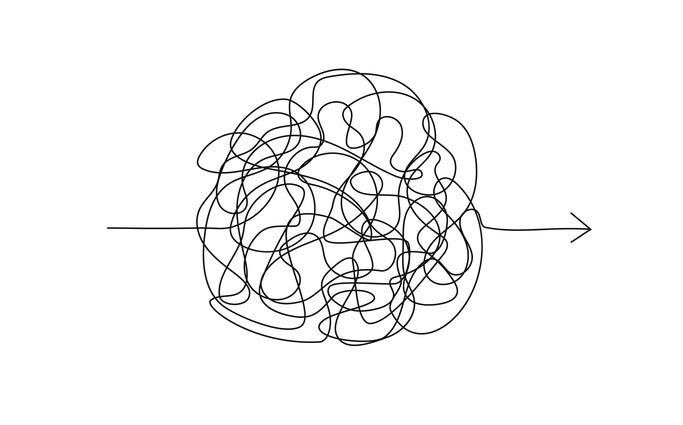Obsessive Compulsive Disorder
OCD is a very destructive anxiety disorder characterized by recurring, persistent thoughts, images, and impulses. It is marked by repetitive behaviours such as checking numerous times to make sure the stove/iron etc. is turned off. Compulsive washing of hands is another common type of OCD. Focusing on these actions deflects the anxiety provoking thoughts or images. Compulsions and obsessions are similar, but manifest differently:

Obsessions are thought based. They’re a preoccupation with a specific thought, usually a negative or fearful thought, that a person simply cannot shake off no matter how hard they try. Compulsions are behaviour based. There’s a “need” to perform an action or activity, often in a very specific way. As hard as the person tries, they can’t stop themselves from performing the behaviour.

Compulsions can be linked with obsessions. For example, an obsession (thought) could be a fear of germs. A compulsion (behaviour) could be a need to wash your hands a certain number of times. The person then links the two having to wash their hands to get rid of the germs.
Washers are afraid of contamination. They usually have cleaning or hand-washing compulsions.
Checkers repeatedly check things (oven turned off, door locked, etc.) that they associate with harm or danger. Doubters and sinners are afraid that if everything isn’t perfect or done just right something terrible will happen, or they will be punished. Counters and arrangers are obsessed with order and symmetry. They may have superstitions about certain numbers, colors, or arrangements. Hoarders fear that something bad will happen if they throw anything away. They compulsively hoard things that they don’t need or use.
One of the most pervasive problems associated with OCD is something called “intrusive thoughts.” Someone with OCD is usually very sensitive to what is and isn’t considered socially or morally appropriate.
Whenever a passing thought pops up that is in some way reprehensible, the OCD brain plays it out repeatedly causing severe anxiety. Frequently the only way to at least temporarily relieve this anxiety is to perform compulsive actions.

OCD
OCD like other anxiety-based issues stems from the appraisal of things as threats. This is what triggers the central nervous system and our fight or flight so violently when we can’t complete a ritual or have intrusive thoughts.
Psychoeducation around ocd as well as understanding the processes that underpin the obsessions and the compulsions are crucial steps in terms of fighting off these debilitating and disorientating experiences. Your good therapist will be able to help you fight these compulsions and train you how to deal with the intrusive thoughts.
Knowing how your own OCD manifests, as well as working with someone trained in working with it can generally help with the symptoms over time.
.
Getting Help
Anxiety Ireland has fully trained counsellors nationwide on standby to assist you in taking back control of these problems.
Our network of counsellors are working online and over the phone so they can be free to reach you where you are located.
Symptoms
- FEAR OF BEING CONTAMINATED BY GERMS OR DIRT OR CONTAMINATING OTHERS
- REPEATEDLY CHECKING IN ON LOVED ONES TO MAKE SURE THEY’RE SAFE
- EXCESSIVE DOUBLE-CHECKING OF THINGS, SUCH AS LOCKS, APPLIANCES, AND SWITCHES
- INTRUSIVE SEXUALLY EXPLICIT OR VIOLENT THOUGHTS AND IMAGES
- FEAR OF LOSING CONTROL AND HARMING YOURSELF OR OTHERS
- COUNTING, TAPPING, REPEATING CERTAIN WORDS, OR DOING OTHER SENSELESS THINGS TO REDUCE ANXIETY
“The earliest symptoms I can remember appeared around age 8. I had started to develop a prayer routine at night which, in my OCD mind, I believed would keep my loved ones safe. I felt I had to say my family member’s names 8 times, touch the right side of the wall after, blink 8 times after that and the list goes on. With so many rules and restrictions, I could not complete the prayer “perfectly” no matter how hard I tried. I vividly remember it was late at night and my mom was still up cleaning. I ran down to her and burst into tears because I could not get my prayers right and was so worried that my loved ones would be hurt because of this.”
Anonymous
“I’m walking down the road with a girlfriend and I feel that she has come into my personal space, I would start to worry that I smelt bad, and that she could smell it. So then I take the letter S for space and put it on a list. Then maybe a passer-by walks past and bumps into my arm, and I take the letter A for arm because I feel that I might have caused them an internal injury. Then a child goes by, and I’m thinking, “Dear God, please do not let me look at that child’s bum because if I do that it might be caught on camera and someone might think I’m a paedophile,” so then I take the letter B for bum. Then my girlfriend starts talking about a mutual friend, and I’m worried I pull a funny face and it looks like I don’t like that person, so I take the letter F for face. Then I’m repeating, SABF, SABF, SABF.”Anonymous
“My OCD normally materializes in intrusive thoughts, hypochondria, intermittent bouts of checking things repeatedly, localized skin picking, and a difficulty in making variations to routines. I make daily to-do lists and get upset or despondent when I don’t complete them. I’m afraid that if I don’t make the lists I’ll forget to do something, and my life will somehow eventually spiral out of control, inevitably ending in the destruction of mankind. So I keep to my lists to preserve humanity (you’re welcome).”
Anonymous
